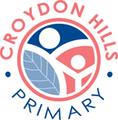Weekly Wellbeing

Failure and Self-compassion
Before I focus on the 4th PERMAH pillar, ‘Meaning’, I need to acknowledge that this week, I have had to put into practise an element of the Accomplishment pillar, ‘getting comfortable with failure’. In essence, l have written about the pillars in the incorrect order!
Last week I should have written about meaning and not accomplishment. Ironically years ago, making such a mistake (in such a public way) would have significantly affected me. I would have felt embarrassed, questioned my intelligence and professionalism and told myself that I was such a failure. This would have impacted me for weeks and had me second-guessing myself.
As we know, this fixed mindset does not help when it comes to accepting that we don’t always get things right and it is ok. One thing that the Certificate of Creating Wellbeing has reinforced is the importance of self-compassion. This is not selfishness, rather the act of telling ourselves the same thing that we would tell a friend, had they made a mistake.
Self-talk is so powerful and it is not only important to think carefully about your own narrative, but the self-talk that your children embark on. Children tend to verbalise their self-talk, which can be really confronting for carers to hear. No one wants to hear their child put themselves down, tell themselves that they are a failure etc. As carers, often our response is “don’t say that about yourself”, or ‘that’s not true”. What might be more helpful is changing these statements (that will often be met with, “I want to say that about myself” and “it is true”), to questions like: “what has happened to cause you to say these things about yourself?”, “How is what you are saying true?” and “if your friend made the same mistake what would you say to him/her?”.
I was recently given a band to wear that asks the question, “What’s the kindest thing I can do for myself right now?” Please email me if you would be interested in one. For more information on self-compassion, visit https://www.kindmindacademy.com/home. There is even a free self-compassion test that you can take!
Meaning – Finally!
Clearly ‘Meaning’ is a BIG topic and one that can’t be unpacked in a few lines. Did you know that happiness and meaning are too different things? One expert on this topic is Emily Esfahani Smith. She has studied meaning and identifies that there are four pillars to meaning: belonging, purpose, storytelling and transcendence. But to vary things up, and for all of the visual and auditory learners out there, click here to watch and listen to her TED talk. Believe me, it is worth the 12 mins and 18 secs. Everyone will take different things away from Emily, but pay specific attention to the ‘Storytelling’ aspect. What story are you and your children telling yourselves about your situation right now?
At the moment, I think we all agree that life is extremely challenging. Everyone is uniquely coping with and processing these challenges on a daily basis. It would be easier (based on our negativity bias brains) to keep repeating the same sentences over and over like, “I’m so tired”, “I can’t get through this”, “we have lost hope”, “It’s all too hard.”
All of these expressions are definitely part of our stories at the moment, but they are not the whole story. This week when your minds and the minds of your children start burrowing down the negativity rabbit hole, remind yourselves that you are the authors of your own stories. You can choose to think differently about your circumstances, you can choose to help your children to think differently about their circumstances. You can change the climate in your households by changing something up, getting out photo albums and reminiscing about holidays that you have been on, talking about ones you will go on again, playing games, having some theme nights or days etc. I know that there are a lot of things we can’t do at the moment. I can assure you that focussing on the things that we can do, and making them a part of your stories will help you and your family to find more meaning and experience more positive emotions.
Please email Carol if you or your children need support and check out the Community Page for links to support services that you might need to access at the moment. You are not alone and people at school and in the community can help you. You just need to ask.
Julie Reid, on behalf of the Wellbeing team

